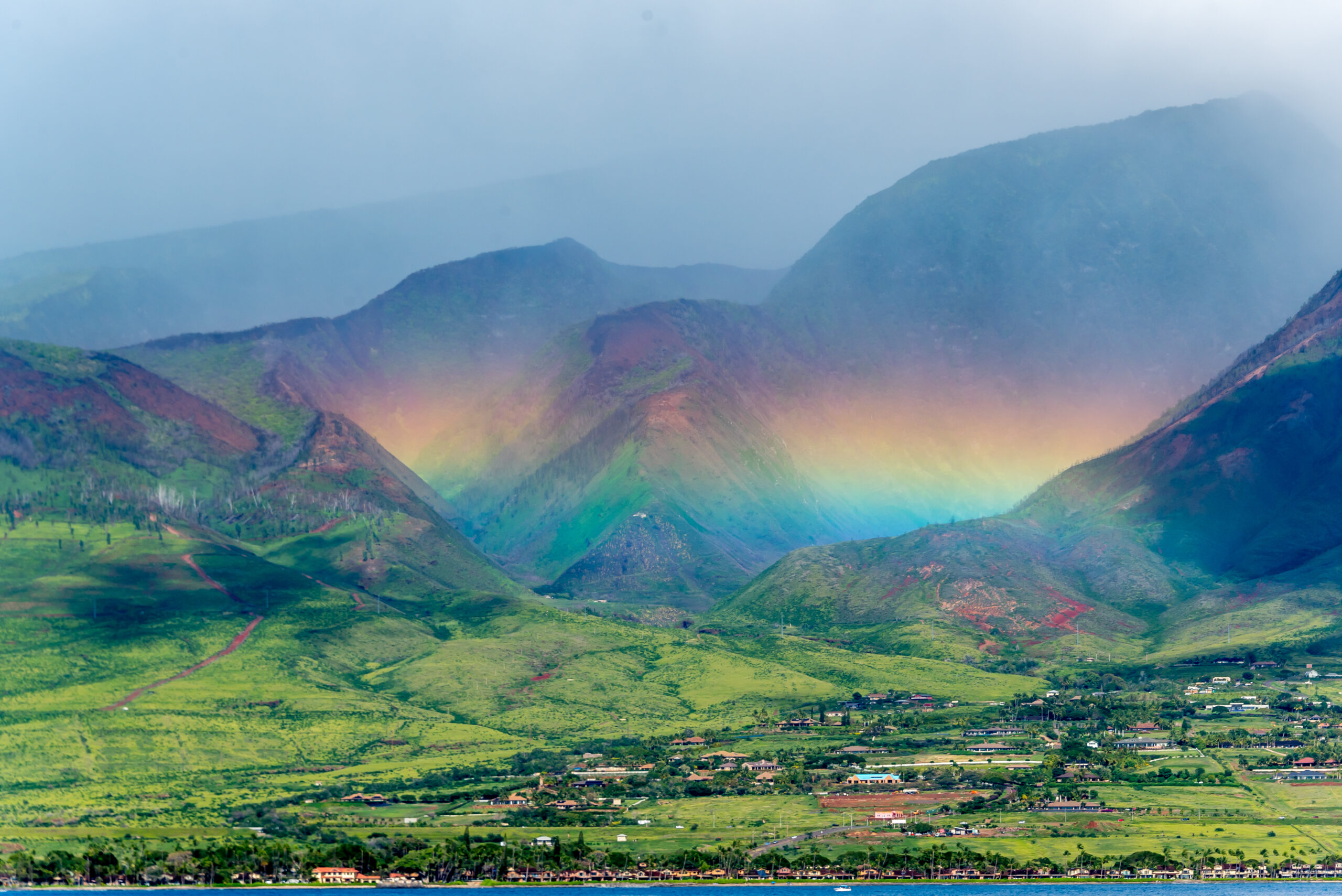
An uakoko, a low-lying rainbow that clings to the ʻāina, over Lahaina. Throughout the Pacific, ānuenue (rainbows) are welcomed as signs from the ancestors, signs of the presence of great mana, and as bridges to Pō or other realms. Uakoko is also used as a term to describe a rainfall so heavy that the streams run reddish-brown with the ʻalae dirt from the hillsides. Aloha ʻia e Lahaina, aloha nō. Courtesy of Jim Sorbie/ Flickr (CC BY 2.0).
for the stolen water, lands, and lives of Hawaiʻi, and especially those of Lahaina
to divert, to steal, to hoard,
to pollute, to contaminate
to leak fuel into
to seep forever
chemicals into
to fill
freshwater springs
with concrete
how you end
the underground artery end
stream flow end estuary end
nursery end drink end
free end sacred end
muliwai end sweet end
breath end
only the water
for forty thousand
kalo iʻa manu
limu moʻo hua
laʻau kumu kānaka
only for forty
thousands and thousands
to thirst
for this
how
effortlessly
you
ecocide
endlessly
na mākou ka wai:
you could retch
on your toxic
crops choke
on your war
chemicals drown
in your concrete
and we
would still
thirst for
more
Editor’s note: Zócalo originally intended to run “Only the Water” by Hawaiʻi Poet Laureate and professor Brandy Nālani McDougall in October, as part of guest curator Allison Adelle Hedge Coke’s month of poetry. Because of the recent Maui fires, we have decided to publish it early.
McDougall tells Zocalo that she wrote this poem after researching colonial water diversion and receiving the public notice of contamination of Oʻahu’s water by the U.S. military, but also sees “water theft and diversion (and the resulting dryness of the land) as key to the voracity with which the wildfires ran through Lahaina” as well. A Native Hawaiian whose ʻāina hānau, or birth land, is Kula, Maui, McDougall writes that her poem speaks directly to “plantation disaster capitalism”—corporate efforts to profit from the climate crisis. For more about water and water rights in Lahaina, and how water theft contributed to the devastation of Lahaina with the wildfires, McDougall recommends this article in the Guardian.



